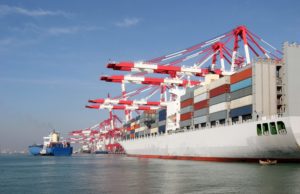A series of strikes in major US and Canadian ports this summer has disrupted supply chains and offers valuable lessons for the shipping industry.
These strikes, prompted by high inflation and stagnant wages, began in April after contract negotiations with port workers in Vancouver and at 29 US West Coast ports fell apart. Although resolutions have been reached, the impact on supply chains has been substantial.
Speaking with ICS Leadership Insights, Guy Ryder, Under-Secretary General for Policy at the United Nations, cautioned against exaggerating the situation and attributed the strikes in part to inflation. To address these issues, Ryder emphasised the need “to take seriously the way workers and employers collectively interact to make sure working conditions are fair”.
Steve Cotton, General Secretary of the International Transport Workers’ Federation, told ICS Leadership Insights that transport workers are demanding recognition and respect for their vital role in the economy. He said the events highlight the need to work together to make the shipping industry attractive, with a key element to ensure that seafarers “are paid what they deserve and given appropriate pay increases in recognition for the critical contribution that they make to the global economy”.
The dispute over contract negotiations ended after many disruptions in cargo operations across major ports in the US West Coast and talks between the union ILWU and the PMA, which represents the terminal operators at West Coast ports.
US West Coast dockworkers have voted to ratify a tentative contract agreement reached in June with employers represented by the Pacific Maritime Association (PMA).
“The negotiations for this contract were protracted and challenging,” said ILWU International President Willie Adams.
On the other hand, West coast dock workers in Canada and their employers’ association reached a negotiated collective agreement with the assistance of Canada´s Industrial Relations Board (CIRB), as their intention was to put an end to a dispute that risked further disruptions at the country´s busiest ports.
Both parties, the union and the employers, were on negotiations in an attempt to renew the industry wide collective agreement which expired March 31, 2023.
“Our economy cannot face further disruption from this dispute,” Canada´s labour minister Seamus O’Regan said.



